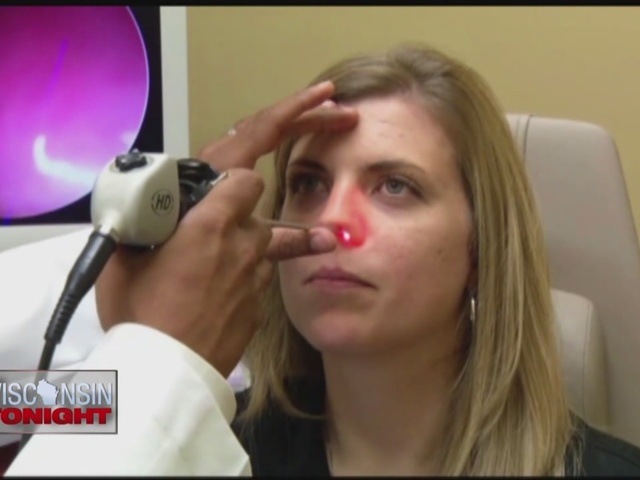Dr. David Gossman is an ear, nose and throat physician with BayCare Clinic. He joined us on Wisconsin Tonight to talk about managing sinus issues.
Sinuses are air filled spaces within the facial skeleton. The sinuses connect to the nose through small, narrow channels. The sinuses stay healthy when these channels are open – this allows air from the nose to enter the sinuses and mucous produced by sinuses to drain into the nose.
Sinusitis is a common disorder that affects 1 in 8 adults annually. It generally occurs when viruses or bacteria infect the sinus. Part of the body’s natural reaction to this infection causes the lining of the nose and sinuses to swell. This can block the sinuses’ natural drainage pathway resulting in mucus and pus filling the nose and sinuses.
The cardinal symptoms of sinusitis include colored nasal discharge along with nasal obstruction/congestion and/or facial pain or pressure in the area of the sinuses.
How can you differentiate from viral vs bacterial infection?
Symptom duration is the most important factor. With a viral illness you are sick less than 10 days and not getting worse. Bacterial sinusitis is likely when symptoms last more than 10 days or when your symptoms get worse after a period of improvement.
What can I do for symptomatic relief?
* REST – this helps your body recover faster
* HYDRATE – drinking plenty of fluid can help dilute thick mucus and promote drainage.
* NASAL SALINE IRRIGATION – this can relieve sinus symptoms and remove mucus that is hard to blow out.
* NASAL STEROID SPRAYS – can reduce symptoms in some patients.
* DECONGESTANTS – these may help you breathe better and can be taken by mouth or as a nasal spray – the spray form should only be used for three days.
Are antibiotics necessary?
In many cases patients get better with the body’s natural immune response and antibiotics are not needed. Antibiotics have been shown in some cases to speed recovery and are an option in treating bacterial sinusitis.
If a patient fails to respond to these conservative treatments or is suffering repeat bouts of sinusitis, a consultation with an Otolaryngologist (or ear, nose and throat specialist) should be considered.
For more information, visit BayCare.net or call 866-431-7431.



